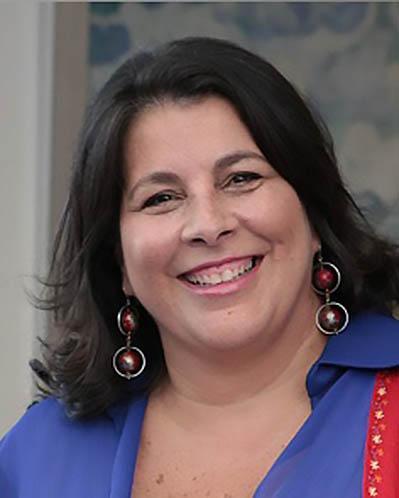
Ana María Celis Brunet is Professor in the Faculty of Law of the Pontifical Catholic University of Chile (UC), where she teaches Canon Law and Law and Religion, as well as post graduate courses in different programs. She received her License and Doctoral degree in Canon Law at the Pontificia Università Gregoriana (Rome, Italy) with the dissertation La relevancia canónica del matrimonio civil a la luz de la Teoría general del Acto jurídico, contribución teórica a la experiencia jurídica chilena. Professor Celis is an ecclesiastical lawyer before the Ecclesiastical Court of Santiago. She is Director of the Center for Law and Religion at UC, which began in 2005 as Centro de Libertad Religiosa, a center for studying Church-State matters and promoting religious freedom. She was the secretary and then President (2013-2016) of the Consorcio Latinoamericano de Libertad Religiosa (Latin American Consortium for Religious Freedom). She was elected President of the International Consortium for Law and Religion Studies (ICLARS) in September 2016.
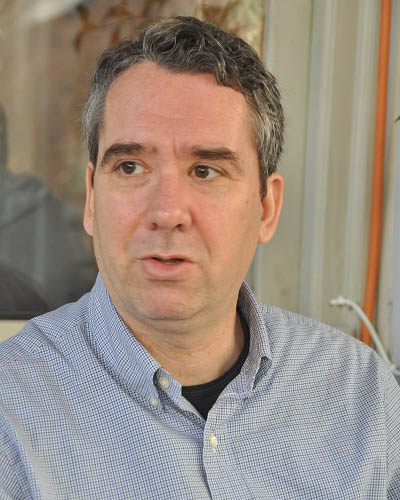
Yannis Ktistakis is a lawyer-senior partner in Ktistakis & Associates Law Firm, and Assistant Professor of Public International Law both at the Faculty of Law, Democritus University of Thrace, Komotini (Greece) and at the Faculty of Political Science and International Relations, Boğaziçi University, Istanbul (Turkey). He is the legal advisor of the Ecumenical Patriarchate. Former memberships include the Executive Board of EUMC, the Greek Equal Treatment Committee, the National Commission for Human Rights and the Secretary General of the Greek League for Human Rights (NGO). He has over 35 publications on issues related to immigration law, religious freedom, Islamic Law, protection of human rights and the jurisprudence of the ECHR. Professor Ktistakis has successfully defended 53 cases before the European Court of Human Rights and one collective complaint before the European Committee of Social Rights. He is fluent in Greek (mother tongue), English and French.
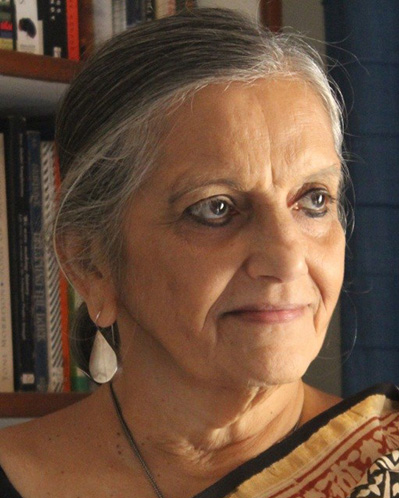
Flavia Agnes is a legal scholar and women’s rights lawyer. A pioneer of the women’s movement, she has worked consistently on issues of violence against women. As co-founder of MAJLIS, which provides quality legal services to women and children, she has helped to secure the rights of thousands of battered women in Mumbai as well as across Maharashtra. Her widely published writings have provided a vital context for feminist jurisprudence, human rights law and gender studies in India. Significant among her many publications are Law & Gender Inequality – The Politics of Personal Laws in India (1999), Women and Law (co-editor) (2004), an Omnibus, Family Law (two volumes) – a prescribed text book for law students (2011),and Negotiating Spaces (co-editor) (2012). Ms. Agnes is a prominent advocate of legal pluralism and her writings on this issue have provided a complex framework for protecting the rights of minority women within the rubric of legal pluralism.
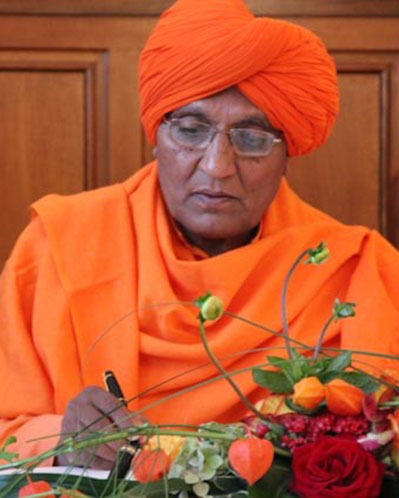
Swami Agnivesh, an activist based in New Delhi, India, is a leader of Arya Samaj, and Board member of KAICIID (King Abdullah bin Abdulaziz International Centre for Interreligious and Intercultural Dialogue). He was awarded the Right Livelihood award, known as the Alternative Nobel, in 2004, for his work for social justice. He is called a cyclonic swami, reflecting his dynamism and the diversity of his activism. He was born as Vepa Shyam Rao in 1939, the grandson of the Diwan (Chief Minister) of a princely state called Shakti, now in Chattisgarh, and part of an Orthodox Hindu family. Later on he obtained Law and Business Management degrees, became a lecturer in Calcutta and practiced law. In 1968 he became a full-time worker of the Arya Samaj, a Hindu reformist movement, and two years later became a sanyasi, renouncing worldly possessions and becoming, in the process, Swami Agnivesh. He has worked on many social issues, including child and bonded labor, inclusion of "untouchables" in Indian religious society, women's rights, and religious tolerance and reconciliation. He is a strong advocate of interfaith action for social justice.
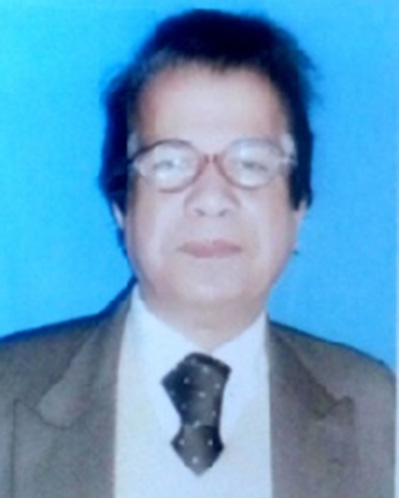
Dr. Imtiaz Gulam Ahmed is a senior Professor of Family Law at Sikkim University and was formerly Dean, Faculty of Law, Kolkata University, Kolkata. He holds an MA, an LLM, and a PhD. His areas of specialisation are jurisprudence, corporate law, human rights, and family law.
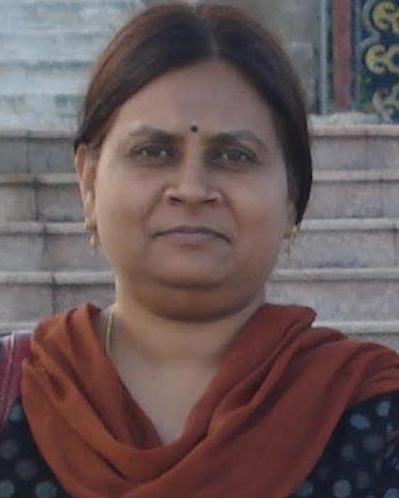
Mrs. R. Anita is presently Dean of Academics and Associate Professor in the Department of Business Management, St. Joseph’s Degree and PG College. She has 12 years of teaching experience and 4 years of industry experience. Her qualifications include a BE in Production Engineering and an MBA from Osmania University as well as qualifications in NET and T-SET. She recently submitted her PhD thesis at Osmania University in Human Resources. Mrs. Anita has presented and published more than 30 papers in various international and national seminars and journals. She was awarded “Best Teacher of the Year” by St. Joseph’s College in the year 2011-2012 and 2012–2013.
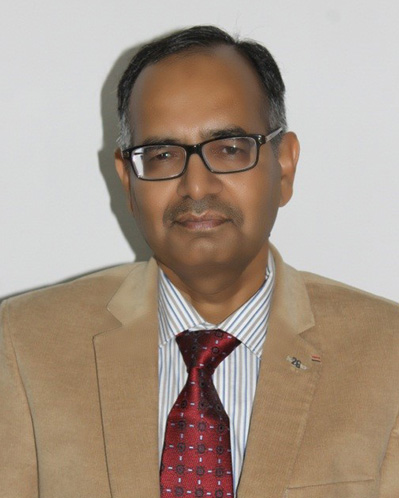
Valeed Ahmad Ansari is working as a Professor in the Department of Business Administration, Aligarh Muslim University. Currently, he is the chairperson of the department and Dean, Faculty of Management Studies. He holds an MA in Economics, and an MBA and a PhD in the area of Finance. His research interests include Asset Pricing, Behavioral Finance, Corporate Governance and Islamic Banking and Finance. He has published papers in national and international journals of repute.
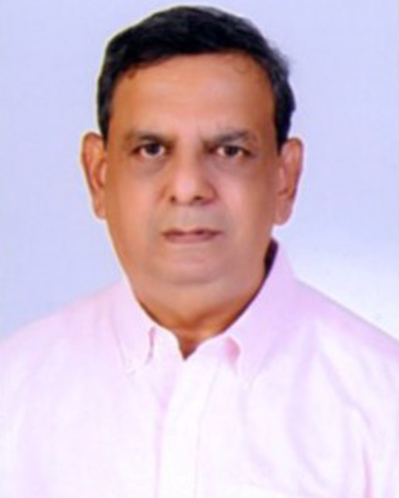
Prof. Dr. Vardaraj Suresh Kumar holds multiple master degrees ranging from English Literature to Law, and has produced 20 PhDs, 20 MPhils, in addition to authoring more than sixty books in Hindi, Telugu, and English. Professor Kumar was awarded the Best Writer Award by the Government of Andhra Pradesh – Hindi Akademi for the year 2012. During the course of pursuing a Diploma in Journalism from Bhavan’s College, he was awarded the Khasa Subba Rao Cash Prize for the best Editing Paper. In 1994, he was awarded the Best Teacher Award by the Vivekananda Study Circle, Hyderabad. In addition to speaking a clutch of Indian languages, he speaks German and French, and has compiled a Dictionary of Basic French Words with Hindi and Telugu equivalents. For several years, he has been instrumental in conducting the concerts of Pt. Jasraj at Nizam College. From 1997-98, he served as an English Lecturer in Muscat Industrial Training College. He has been a Corporate Trainer for the past few years imparting Soft Skills Training and Personality Development. Professor Kumar has held half-a-dozen painting exhibitions.
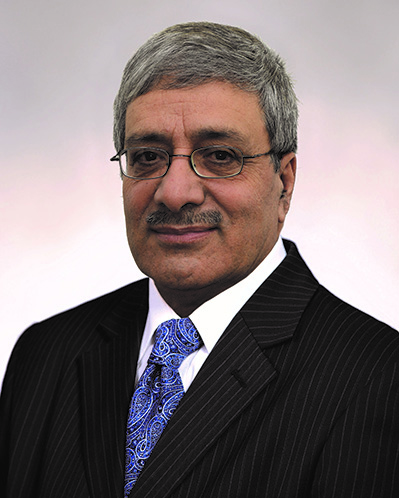
Professor M. Aslam is currently Vice Chancellor, Indira Gandhi National Open University. Previously, he served as a Professor in the School of Continuing Education (SOCE), IGNOU for 25 years during which period he also held positions of Director, SOCE twice, and Director, National Centre for Innovations in Distance Education. He was Founder Director (Training) at the Centre on Integrated Rural Development for Asia and Pacific (CIRDAP) between 1981-88 based in Dhaka. A Fellow of EDI of the World Bank (1986), he has authored eight books, three chapters, dozens of papers and reports. He served as a consultant/expert to FAO; UNDP; EDI of the World Bank; Commonwealth Advisory Services, Inc, Philippines; NISTADS; UNESCO; ADB/Price Waterhouse; AARRO; UPSC; ESCWA of the United Nations; Commonwealth of learning. He has widely traveled across 35 countries of the world.
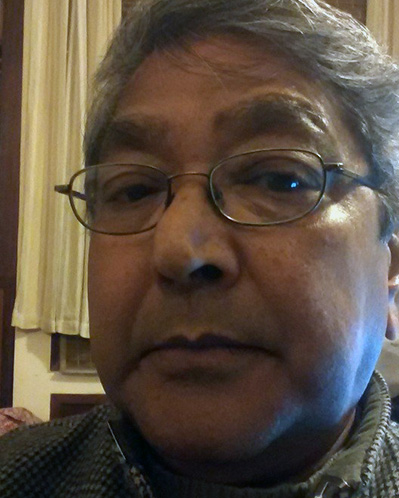
Tapan Kumar Bose, is the Secretary General of the South Asia Forum for Human Rights (SAFHR). During his tenure he built SAFHR into a unique public forum in South Asia for regional dialogues, advocacy campaigns, teaching, and research. Its flagship, the Human Rights and Peace Studies Orientation Course, has a been a trail blazer in developing South Asian perspectives and an experimental pedagogy. He also developed a conceptual framework and a dialogue platform for auditing peace accords from a human rights perspective. Women in Conflict and Peacebuilding programme was a pioneer in research on the gendered experiences of conflict and peacebuilding which was initiated by SAFHR under his guidance in 2006. SAFHR’s Media and Conflict programme enabled a peer review of the Media as an actor in reporting conflicts and produced research publications and a network of ‘sensitized’ media practitioners. Its Refugee programme focused on the absence of legal norms and campaigned for adoption of national law for protection and a regional convention. The Minority Rights programme was designed as a regional campaign for promoting respect for the rights of ethnic, religious and linguistic minorities. SAFHR’s dialogue forum on minorities brought out the first ever regional compendium on the status of minorities in the countries of South Asia. He has made several documentary films on human rights issues, and written books and articles on protection of refugees, minorities, and on self-determination movements in South Asian states and state response.
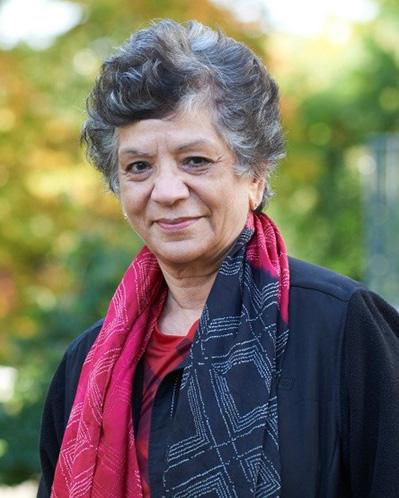
Professor Neera Chandhoke is India’s leading scholar on secularism and minority rights. She is a Visiting Professor at JNU and Senior Fellow at Goethe University, Frankfurt. Her research interests include Political Theory, Indian Politics, and Comparative Politics. From 2013-15, she was a National Fellow for the Indian Council of Social Science Research, New Delhi, and a Visiting Senior Fellow at the Centre for Ethics and Global Politics, Luiss University, Rome, before that. Other appointments include Gaetano Mosca Chair, University of Turin, Turin; President, Asian Political and International Studies Association; International Visiting Fellowship, Centre for Civil Society, London School of Economics and Political Science, London; Shastri-Indo Canadian Fellowship, Shastri Indo-Canadian Foundation, Delhi; Fellow, Centre for Contemporary Studies, Nehru Memorial Museum and Library, Teen Murti House, New Delhi; and Teacher Fellow, UGC, Delhi. Professor Chandhoke is the recipient of the National Swami Pranavananda Saraswati Award for her contributions to political science at UGC, Delhi, and the Eminent Alumna Award from Lady Shriram College, University of Delhi. She has published five books. The most recent is Democracy and Revolutionary Politics in 2015.
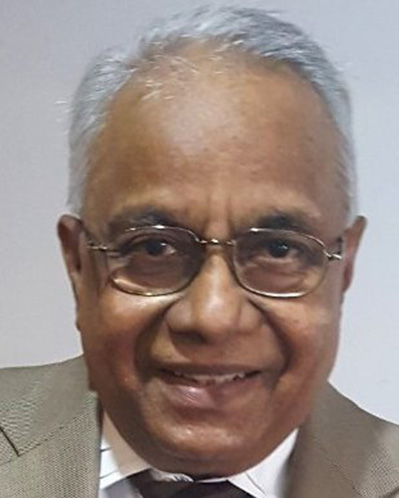
Dr. Jayakar Dalavai is currently a Professor and Management Consultant at NALSAR University, Hyderabad, India. Prior to this, Jayakar taught Business Management at Immanuel PG College, Hyderabad and at Tabor College, Hillsboro, KS. In addition, Jayakar has held management and IT consulting positions at California State Automobile Association, SPRINT, NORTEL, and Burlington Northern Railway Company. Jayakar has more than 10 years of experience in academics and 31 years experience in IT, research, transportation, and logistics arenas. Jayakar has implemented and led Program Management Offices in numerous organizations. He holds two Bachelor of Arts degrees in Mathematics and CIS, a Master of Business Administration in Management, a Doctorate in Business Management, and a professional certification, PMP, through the Project Management Institute (2000-2007) and Stanford University. Dr. Dalavai serves as an external examiner for the doctoral program (Business) at Nagarjuna University, Guntur, India, and Kerala University, Kochi, India, Vignan University, Guntur, India, and Jawaharlal Nehru Technical University, Hyderabad. Dr. Jayakar writes articles for different management journals. His vision is to train young managers to adapt to the changing global environment and fervently practice ethical leadership. Dr. Jayakar is a Citizen of USA and India.
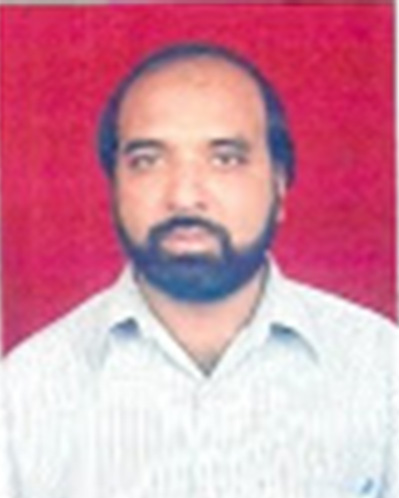
Ishtiyaque Danish is a senior faculty member at Jamia Hamdard, New Delhi, India. He specializes in Islamic and West Asian Studies. He has extensively written on various aspects of Islam in India and the Middle East. He has written four books and dozens of research articles which have been published in leading national and international journals. His articles on topical issues and subjects of contemporary relevance also appear in national dailies, both Urdu and English. His is an Islamic approach, guided mainly by his insightful knowledge of Holy Quran and Hadith which enables him to write from an Islamic as well as a social science perspective. Dr. Danish is editor of Journal of Objective Studies, a prestigious biannual publication of the Delhi-based think tank, Institute of Objective Studies. He also edited Studies on Islam for three years.
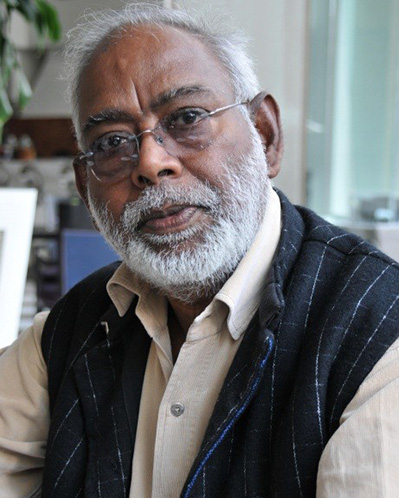
Dr. John Dayal is one of India’s foremost voices on human rights, particularly on the situation of religious minorities. A researcher and writer, he has been an activist for more than 45 years. He has a long record of investigating and producing substantive and influential documentation on communal and targeted violence in India, including Hindu-Muslim riots and violence against Sikhs, Muslims and Christians. He is also a strong voice against Capital punishment and Nuclear weapons. He is or has been a member of several governmental bodies, including the National Integration Council chaired by the Prime Minister of India, and has senior roles in numerous non-governmental organisations and networks, including as co-founder and Secretary General of the All India Christian Council (1968-2016), National President of the All India Catholic Union (2004-2008), and Spokesman of the United Christian Forum (since 2015). He was a member of the Justice and Peace Commission of the Catholic Bishops’ Conference of India. He has had a long and distinguished career in the media, including as a war correspondent in the Mid-East and Sri Lanka, and in academia. He has authored, edited, and contributed to several books including For Reasons of State – Delhi under the Emergency (published 1977, with Ajoy Bose), Gujarat 2002 – Untold and Retold Stories, A Matter of Equity – Interrogating Secularism in India. He is currently researching a book on Hindutva with specific reference to its targeting of Abrahamic Religions as in Kandhamal, Orissa in 2007-8, and a book on the first Chief Justice of Goa after Liberation. His articles have appeared in major Indian and international media. He is a well-known speaker on issues of civil liberties, secularism and peace.
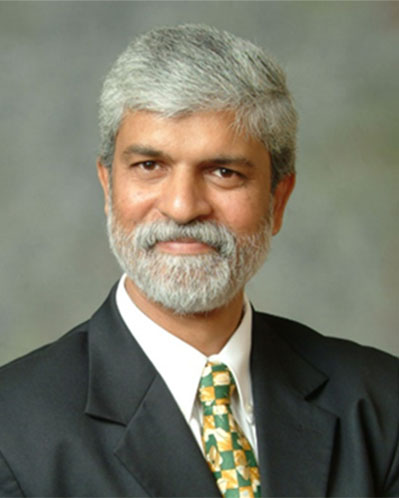
Dr. Samson Gandhi M.B.A., Doctor of Ministry, serves as the Executive Director of Person to Person – Institute for Christian Counselling. Today, it is an international organisation training counsellors in India, South and West Asia. He is a widely published author, an international speaker on leadership and counselling, a compelling teacher on spirituality, and a sought-after family counsellor. His work can be reviewed at www.persontoperson.org.
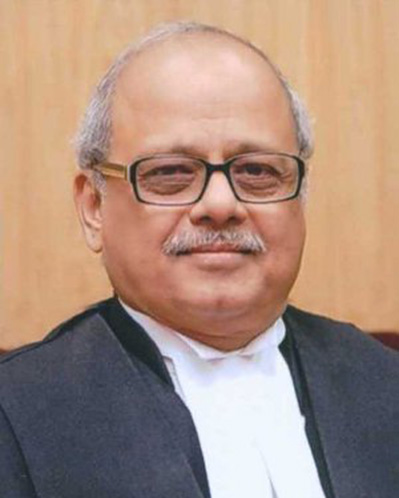
Hon'ble Mr. Justice Pinaki Chandra Ghose is a fifth generation lawyer. He graduated in Commerce from St. Xavier’s College, Calcutta, received an LLB from the University of Calcutta, and obtained Attorney-at-Law at Calcutta High Court. He enrolled himself as an Advocate on November 30, 1976 with Bar Council of West Bengal. He practised in Civil, Commercial, Arbitration, Constitutional and Company matters both in the Original Side and Appellate Side at Calcutta High Court. On July 17, 1997, he was elevated as a permanent Judge of High Court at Calcutta. Previously, he held the post of Executive Chairman, Andaman & Nicobar State Legal Services Authority and Executive Chairman, State Legal Services Authority, West Bengal. He was nominated as a Member of the National Legal Services Authority on November 06, 2011. Justice Ghose is a Life Member of the Indian Law Institute which he has been associated with since January 14, 2005, acting as the Treasurer until May 22, 2012. He was Chairman of the Institutional Ethics Committee of the National Institute of Cholera and Enteric Diseases, Kolkata; President of the Governing Body of Ramakrishna Mission Sikshana Mandir, Belurmath, West Bengal; and President of the Governing Body of Ramakrishna Mission, Sikra Kulingra, Basirhat, West Bengal. He is Vice-President of the Governing Body of the Institute of Culture, Ramakrishna Mission, Gol Park, Kolkata; and Swami Vivekananda Ancestral House, Ramakrishna Mission, Kolkata, and a Member of the Executive Council of the National University of Juridical Sciences, Kolkata. On 25 June 2012, Justice Ghose transferred to Andhra Pradesh High Court and assumed the charge of Judge of the said High Court and charge as an Acting Chief Justice. On 12 December 2012, he was appointed as the Chief Justice, High Court of Andhra Pradesh. Later, on 8 March 2013, he was appointed and assumed charge as Judge of the Supreme Court of India.
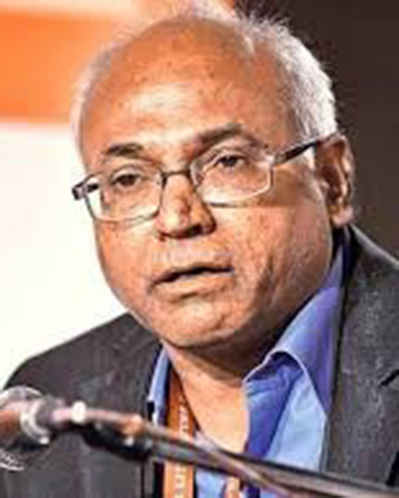
Kancha Ilaiah is an Indian political scientist, writer, and activist for Dalit rights. He is a prolific writer in both English as well as Telugu. Kancha Ilaiah received an MA degree in political science and an MPhil, awarded for his study of land reform in the south Indian state of Andhra Pradesh. He has been a recipient of the Mahatma Jyotirao Phule Award and was a Nehru Fellow between 1994-97. Ilaiah earned a PhD on the basis of his work exploring the political dimension of Buddhism, culminating in God as Political Philosopher - Buddha Challenge to Brahminism. Illaiah has encouraged proficiency in the English language for Dalits, arguing that it would allow Dalits in India to intellectually engage the world outside India without non-Dalits speaking for them. In May 2016, in protest against Brahmanic hegemony he claims continues to persist in India, Ilaiah appended "Shepherd" to his name as a symbolic break with the cultural norms Ilaiah believed Brahmins sought to impose on Indian society. Currently, Kancha Ilaiah is serving as Director of the Centre for Social Exclusion and Inclusive Policy at Maulana Azad National Urdu University (MANUU) in Hyderabad. His appointments have included Director, Centre for Study of Social Exclusion and Inclusive Policy (CSSEIP) at Maulana Azad National Urdu University, Hyderabad; Member of the National Research Committee constituted by the Ministry of Social Justice, New Delhi; Member – Indian Council of Social Science Research (ICSSR), New Delhi; Former Member of the National Book Trust, Ministry of Human Resources Development, Government of India, New Delhi for three years; Member of the Planning Commission Sub Committee to formulate an agenda for land reforms for the XI Five Year Plan; Member of the UGC Constitutional Committee to oversee the implementation of OBC reservations in all Central and State universities in India; and Former member of the Executive Council of Periyar Maniammai University (Tamil Nadu).
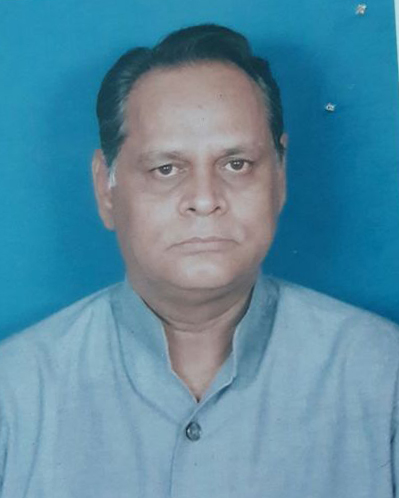
Ahmadullah Khan is a Professor of Law, Osmania University, Hyderabad. He served as Dean of the Faculty of Law at Osmania University from 2001-2005 and prior to that, was Head of the Department of Law. He has served in other positions at the University including Principal, Post Graduate College of Law; Chairman, Board of Studies in Law; and a member of the Executive Council. He is a Member of the University Court at Aligarh Muslim University. Professor Khan was the recipient of two Gold Medals from Osmania University for standing first in LLM, and was the recipient in 2003 of the Abul Kalam Azad State Award for Best Teacher given by the Government of Andhra Pradesh. He is the Founder Chairman of the Board of Studies in Law, S.P. Mahila University, Thirupati. He holds a PhD in Labour Law and an MA in Islamic Studies. He has authored three books and had many research articles published on the topics of Islamic Law and Labour Law. He is the Director of the Osmania Oriental Publication Bureau, also known as Dai’ratul Maa’rifil Osmania, a century old research publication bureau famous all over the world for its publications in Arabic on rare Arabic manuscripts. Presently, he also works as a Professor of Law at Sultan-ul-Uloom College of Law and an Advisor to Sultan-ul-Uloom Education Society and Shadan Education Society.
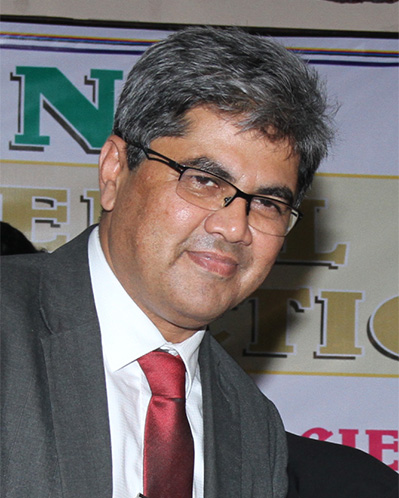
Amirullah Khan serves as advisor to the Bill and Melinda Gates Foundation and Research Director at Aequitas Consuĺting which focuses on entrepreneurship, skills development and innovation in the development sector. He graduated from the Institute of Rural Management in Anand and has a PhD from the Jamia Millia Central University in New Delhi. Amir teaches a course on Indian Economic Policy at the Indian School of Business in Hyderabad and another on Health Economics at the Manipal Institute of Technology. He has been a member of the Prof Kundu headed Post Sachar Evaluation Committee of the Government of India. He is a member of the Commission of Inquiry headed by G Sudhir set up by the state government to look into socio economic inequalities in Telangana. Amir has been Director at the India Development Foundation, Deputy Director General at the PHD Chamber of Commerce, Adjunct Professor of Law and Economics at the Edith Cowan University in Perth, and Executive Editor at Encyclopaedia Britannica.
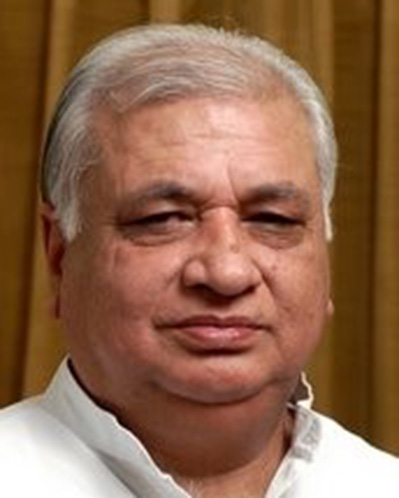
Arif Mohammad Khan is a former Minister of the Government of India. He was educated at Jamia Millia School, Delhi, Aligarh Muslim University, Aligarh and Shia College, Lucknow University. He was the General Secretary, Aligarh Muslim University Students' Union from 1971 to 1972 and its President from 1972 to 1973. Arif Mohammad Khan started his political career as a student leader. He contested the first legislative assembly election from Siyana constituency of Bulandshahar on Bharatiya Kranti Dal party's banner but was defeated. Khan joined the Indian National Congress and was elected to the Lok Sabha in 1980 from Kanpur and 1984 from Bahraich. In 1986, he quit the Indian National Congress due to differences over the passage of the Muslim Personal Law Bill which was piloted by the then Prime Minister Rajiv Gandhi in the Lok Sabha.
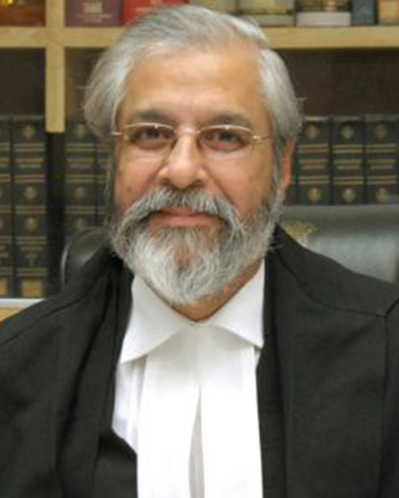
Hon'ble Mr. Justice Madan B. Lokur graduated in History (Hons.) from St. Stephen's College Delhi University in 1974, obtained an LLB degree from Faculty of Law, Delhi University in 1977, and enrolled as an Advocate on 28 July 1977. Justice Lokur practiced in the Supreme Court of India and the Delhi High Court. He enrolled as an Advocate-on-Record in the Supreme Court in 1981. Justice Lokur has vast experience in Civil, Criminal, Constitutional, Revenue, and Service laws. He was appointed as the Editor, ILR (Delhi Series) in February of 1983 and continued as such until his elevation to the Delhi High Court. Justice Lokur was on the Central Government Standing Counsel from December 1990 to December 1996. In February 1997, he was designated as Senior Advocate. On 14 July 1998, he was appointed as Additional Solicitor General of India and continued as such till appointed as an Additional Judge of Delhi High Court on 19 February 1999. He was appointed as Permanent Judge of that High Court on 5 July 1999. From February 2010-May 2010 he functioned as the Acting Chief Justice of the Delhi High Court. He also functioned as Chief Justice of Gauhati High Court from June 2010 to November 2011, and Chief Justice of High Court of Andhra Pradesh from November 2011 to June 2012. Justice Lokur was appointed as Judge of the Supreme Court on 4th June 2012. He has been a member of the Mediation & Conciliation Project Committee of the Supreme Court of India since its inception in 2005. He is Judge in charge of the E-Committee of the Supreme Court of India, and was appointed as a one-man committee to suggest improvements in the working of the homes and organization under the Juvenile Justice (Care and Protection and Children) Act, 2000 and the Juvenile Justice (Care and Protection of Children) Rules, 2007.
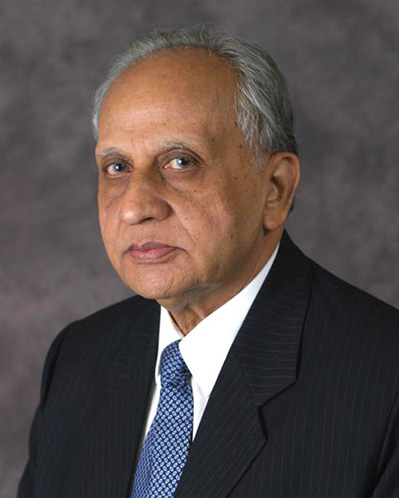
Dr. Tahir Mahmood had his higher legal education in England and is a senior Law Professor of India with a teaching and research career of over half a century. He spent about three decades in Delhi University and served as Dean of its Law Faculty. In 2003 he moved to Amity University where he holds the positions of Distinguished Jurist Chair, Professor of Eminence, and Chairman of the Institute of Advanced Legal Studies. He has been on deputation to the Government of India as Chairman of the National Minorities Commission and Member of the National Human Rights Commission, National Commission for Backward Classes among Minorities, and Law Commission of India. His major interests are in religion-state relations, Islamic law and other family laws. His many publications include Laws of India on Religion and Religious Affairs (2008), Religion, Law and Society across the Globe (2013), Reminiscing on Law Brains: Bench, Bar and Academia (2014), Principles of Hindu Law: Personal Law of Hindus, Buddhists, Jains and Sikhs (2014), Amid Gods and Lords: Living through Labyrinths of Religion and Law (2nd edn 2015), Minorities Commission 1978-2015: Minor Role in Major Affairs (2nd edn 2016), Muslim Law in India and Abroad (2nd edn 2016). His books on family laws have been cited in a large number of judgments of the Supreme Court and various High Courts of India. He is a member of the Advisory Board of the International Center for Law and Religion Studies at Brigham Young University in the US, Steering Committee of Italy-based International Consortium for Law and Religion Studies, and Editorial Board of the Journal of Muslim Minority Affairs (KA University, Saudi Arabia). He is the recipient of the Shah Waliullah Award for Contemporary Understanding of Islamic Law (India 2009), and the Distinguished Academic Services Award (US, 2010).
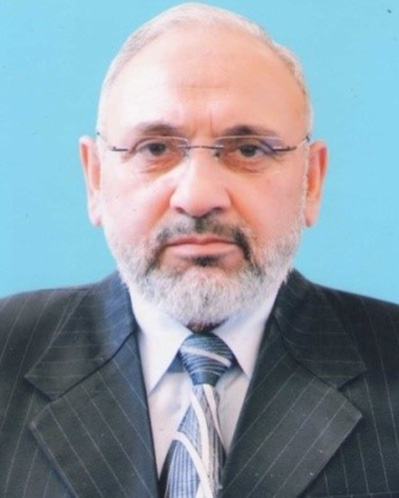
Professor Mehraj Uddin Mir earned an LLB, LLM, and a PhD in law from Aligarh Muslim University. He also obtained diploma degrees in Public Administration and Foreign Affairs with distinction. He served in the University of Kashmir for more than 37 years in key positions and in different capacities. At present, he is teaching and guiding research at the School of Legal Studies, Central University of Kashmir, and serves as Dean, School of Legal Studies, Central University, and officiates as Vice-Chancellor. His main research interests include Crime and Criminal Justice System; Peace Initiatives at Regional Level; Police Science and Police Community Relations; Prison Reforms and Rehabilitation Process and Quality Control in Higher Education, Teaching, Research and Extension (TRE). He is a consultant to a number of National and International Institutions. He also has the distinction of completing several Research assignments in collaboration with Max-Plank Institute of International Criminal Law, Germany; ICCLRCJP, Canada; UNESCO-MOST Project, Paris; LOSOU, Malaysia and BPRD, New Delhi. He has travelled extensively and taken part in more than 200 seminars/workshops internationally. Publications include two books and papers in more than 49 national and international journals. Dr. Mir has served as a member/executive member/chairman of various Bodies, State and National Committees including Board of Research Studies, Academic Council, Executive Council, University Council, UGC Expert Committees; National Assessment and Accreditation Council, Bangalore; Bureau of Police Research Development, New Delhi; Ministry of Welfare and Social Justice, New Delhi and State Advisory Committee and various other Committees.
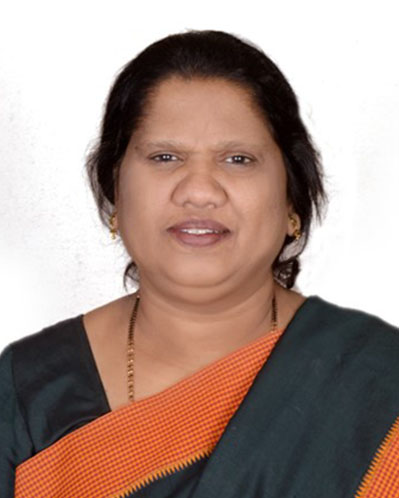
Shahida Murtaza has an MSc in Anthropology and a doctorate in Reproductive Health from the Department of Anthropology, Karnataka University, Dharwad. She has served in four universities in different capacities as a researcher and as a teacher. For the last two and a half decades she has been actively involved in gender issues. Her areas of academic interest are gender concerns in health, human rights, rural development, and unorganized sector. She has keen interest in Muslim Women’s status and gauging the difference between the Text and the Context. Shahida contributes to feminist scholarship through her writings and publications, and has written three books. She has participated and shared her scholarship at various international forums in Montreal, Canada, Madrid, Bonn, Berlin, Atlanta, among others. Presently, Shahida serves in the Department of Women's Education as Professor and Head in Maulana Azad National Urdu University, Hyderabad, India, teaching women’s studies to post graduate students and serving as a research guide. She has several students under her guidance pursuing their MPhils and PhDs. She is working on a major Research project funded by the University Grants Commission. The project aims at bridging the knowledge gap between rural and urban populace through digitization.
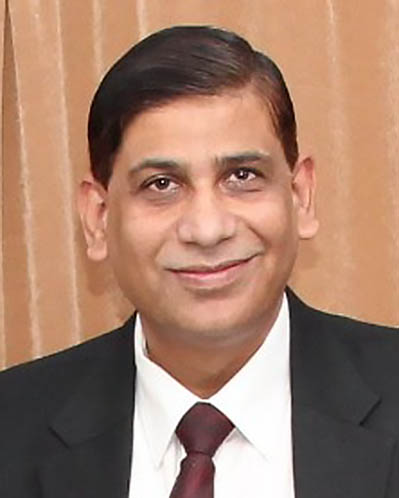
Prof. Dr. Faizan Mustafa is the Vice-Chancellor of NALSAR University of Law, Hyderabad, India. He was the founder Vice-Chancellor of National Law University, Orissa. He has served as Dean, Faculty of Law, Aligarh Muslim University and Registrar of AMU. He is a gold medalist LLM from Aligarh Muslim University. He completed his PhD in Copyright Law. He also has a diploma in International and Comparative Human Rights from International Institute of Human Rights, Strasbourg, France. He has authored several books and some 100 national and international papers. He has worked in unexplored areas such as Religious Conversion Laws, Strict Liability Law, and Freedom of Information Law.
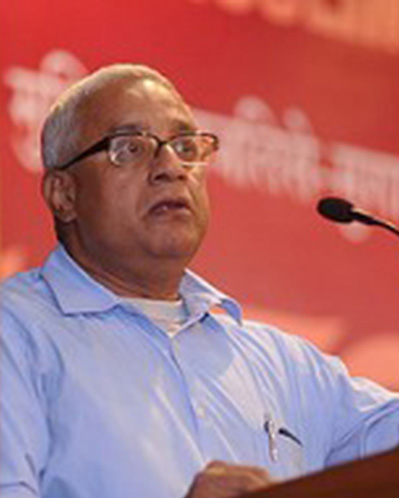
Mr. Ravi Nair is the Executive Director of the South Asia Human Rights Documentation Centre (SAHRDC) since October 1990. He was the Ida Beam Distinguished Lecturer at Iowa University in October 2000, and delivered the Edward A. Smith Lecture in November 2005 at the Harvard Law School. Mr. Nair was an international consultant to the Technical Advisory Services Program of the Office of the United Nations High Commissioner for Human Rights in its training programs in Nepal and previously conducted workshops in Armenia for UN Human Rights mechanisms. He has conducted training workshops on International Human Rights Mechanisms in over 30 countries across the world. Mr. Nair served on the first Curriculum Development Committee of the University Grants Commission of India for the teaching of Human Rights in Law Schools across India. He was a visiting professor at Mahidol University, Thailand for the MA programme on Human Rights, and is a regular guest lecturer at the National Judicial Academy, Bhopal. He taught a clinical course on Immigration and Refugee law at the National Law University, Delhi, a certificate course on international human rights procedures at the National Law University of Odisha, and Human Rights for a post graduate diploma course in Lady Shri Ram College, New Delhi. He is a regular guest lecturer at universities through India. On 31 August 2015, Mr. Nair was recognized for his work for the protection of minorities in India with the Life Time Achievement Award from the All India Muslim Majlis-e-Mushawarat, the federation of all Muslim organisations across India. In addition, Mr. Nair was the recipient of the M. A. Thomas National Human Rights Award for 1997.
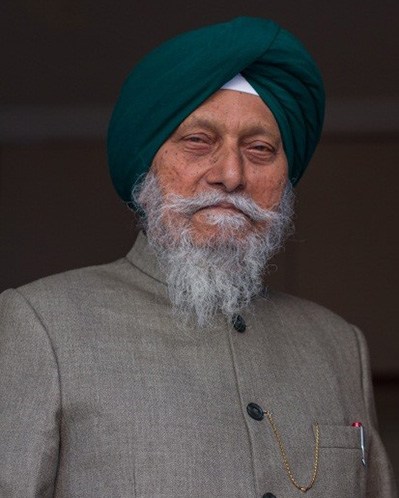
Nanak Singh Nishter earned an MA from Osmania University. He is a social scientist, public activist, interfaith promoter, poet, orator, and writer on religious and social issues. He has presented papers on Sikhism and Interfaith Relations in various national and international seminars, conferences, and universities within the country and abroad at UK, USA, Pakistan and Bangladesh. He has authored 11 books and about 250 articles in Urdu, Hindi, Punjabi, and English, published by electronic and print media all over the world. His works are translated in Gujrathi, Telugu, Marathi, Arabic, Telugu and Marathi.
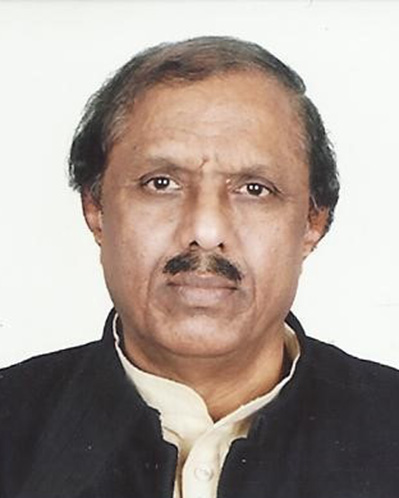
Dr. Jetti A. Oliver served as the Vice President of the National Council of Churches in India, was the founder Treasurer of the India Peace Centre, and was the Chair of the Board of Conciliation, Mediation, and Arbitration of the NCCI. He also served on the International Board of Directors of “Oikocredit” - Bank for the un-bankables of the World Council of Churches. He is a member of the Governing Council of the Society for International Development. His interests are poverty alleviation, youth empowerment, sustainable development, interfaith relations, communal harmony, and peace promotion. He is currently the Chairman of SHECS and Chancellor of SHUATS University at Allahabad.
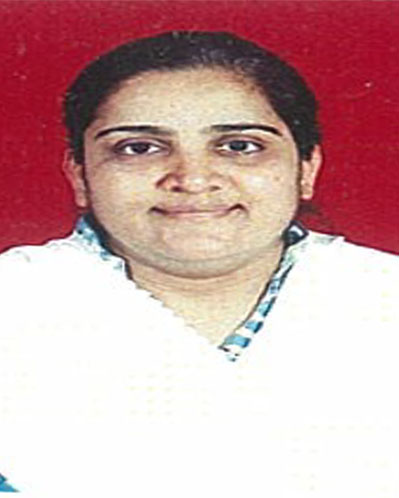
Dr. Rashmi M. Oza is the recipient of the Gold Medal for securing First-Class-First in Master of Law Degree from Mumbai University. She pursued a Post-Graduate Diploma in Human Rights from the University of Mumbai, and earned her Doctorate Degree from Mumbai University with a thesis on “Human Rights and Gender Inequalities in India”. She is NET qualified. Presently, Dr. Oza is Professor and Head, Department of Law, Mumbai University and I/c, and Professor, Justice M.C. Chagla Chair on Human Rights and Civil Liberties, Department of Law, University of Mumbai. She is a recognized guide for PhD Law students, and a member of various committees at Mumbai University, SNDT University, and other Central Government Organisations. In May of 2012 she was conferred “Shiksha Rattan Puraskar” by the India International Friendship Society, New Delhi for her outstanding achievement in the field of education. In addition to serving as Chairperson of the NGO Human Rights Action Group (India), Dr. Oza conducts awareness programmes in Human Rights, and is affiliated with various social organizations working for the cause of under-privileged and vulnerable sections of the society, especially women and children. Dr. Oza is a Life Member and National Coordinator of the Jurists Wing of Brahma Kumaris, and serves as a resource person for Jurists Conferences held in various parts of India as well as Refresher and Orientation Courses for Teachers conducted by the University Grants Commission (UGC). She has been published both nationally and internationally.
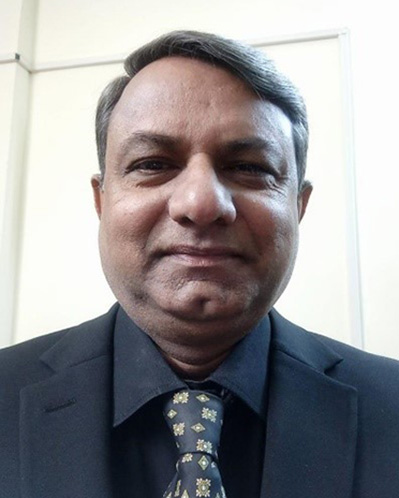
Professor (Dr.) J. S. Patil, LLM, PhD, is the Vice Chancellor of National Law University and Judicial Academy Assam, Guwahati. He was the founder Vice Chancellor of Karnataka State Law University, Hubballi, Karnataka, an affiliating university with 95 law colleges. He has been a law teacher for more than 35 years and a known speaker on Hindu Jurisprudence. His experiments with nationalism and patriotism are well appreciated.
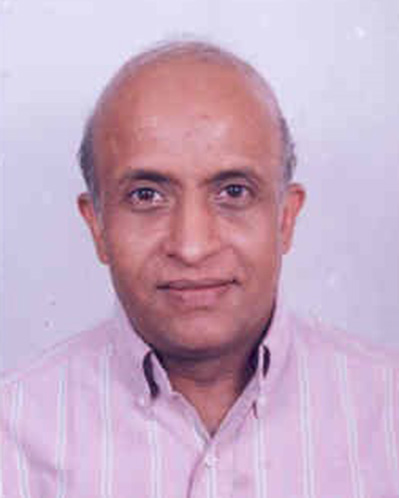
C.S.R. Prabhu is Director General (Retired) of the National Informatics Centre, (NIC) of the Government of India. He worked in NIC in various capacities as State Informatics Officer for Andhra Pradesh and also Tamil Nadu. Prabhu conceived and implemented various E-Governance projects such as E-Panchayat. He has authored ten books on E-Governance and frontier Computer Science areas such as Big Data Analytics and Knowledge Management among others. He has also worked and visited countries like the United States, Germany, France and Japan. For approximately 40 years, he has taught Yoga all over the world and has authored several books on Yoga. In addition, Prabhu evolved a new concept and approach of Dharma Yoga as a common acceptable and possible solution to the current day problems of sustainability, world peace, and corporate social responsibility. Prabhu has family background in Sanskrit and Vedic literature and traditional scholarship.
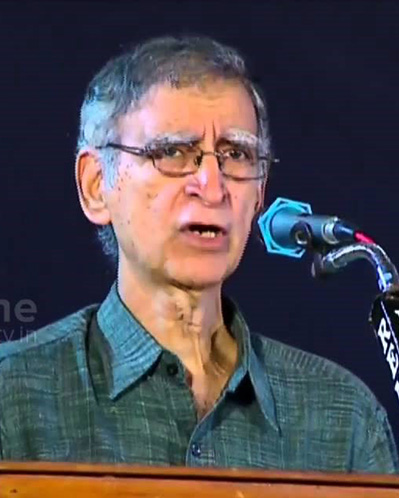
Ram Puniyani, former Professor IIT Mumbai, is a writer activist, working on the issues related to preservation of democratic, plural values in society. He has been focusing on the threats of sectarian politics in the name of religion and the threat posed by the imperialist aggressions for the lust of oil. He is the author of Communal Politics: Facts versus Myths (SAGE); Contours of Hindu Rashtra (KALPAZ); Second Assassination of Gandhi (Media House); Deconstructing Terrorist Violence (Sage) Caste and Communalism (Olive); God Politics (Vitasta); Social Justice (Mythri); and Indian Nationalism versus Hindu Nationalism amongst others. Puniyani has been part of the Peoples Tribunal on Communalism and Issues Related to Violence. He conducts workshops on communal harmony and national integration and regularly publishes articles on issues of communalism and terrorism. Puniyani is the recipient of the Indira Gandhi National Integration Award (2006), the National Communal Harmony Award (2007), and the Mukundan C. Menon Huuman Rights Award 2015.
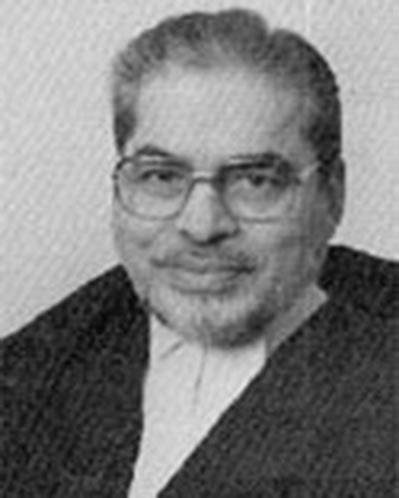
Hon’ble Justice S.S.M. Quadri, former Judge, Supreme Court of India, received a BA and LLB from Osmania University, Hyderabad (A.P); an LLB from University of London; Specialization in Taxation, Company Law and Islamic Law; Bar at Law from Lincoln's Inn; and enrolled as an advocate on 7 January 1963. He has practiced both on the original side in Trial Courts and on the appellate side in the High Court of Andhra Pradesh. From 1972-1981, Justice Quadri was a Part Time Lecturer in the College of Law, Osmania University. He also worked as Government Pleader in the High Court of Andhra Pradesh at Hyderabad from 1981-1986, and was appointed Judge of High Court of Andhra Pradesh in July, 1986. He previously served as Dean, Faculty of Law, Kakatiya University, A.P., and was a Member of the Board of Governors, Andhra Pradesh Judicial Academy, and Executive Chairman, Andhra Pradesh State Legal Services Authority. From November 1997 to December 1997, he worked as the Acting Chief Justice of High Court of Andhra Pradesh. Justice Quadri was appointed as a Judge of Supreme Court of India on December 4, 1997. He is an Executive Member, National Academy of Legal Studies and Research University (NALSAR), University of Law, Hyderabad, and has been a member of collegium of the Hon'ble Supreme Court. He held the position of the Chairman of the Supreme Court Legal Services Committee on January 1, 2003. On 5 April 2003, Justice Quadri retired as the Judge of the Supreme Court of India. He was appointed as Chairman, Authority for Advance Ruling (Income-Tax) with full additional charge of Chairperson for Authority for Advance rulings (Customs & Central Excise) on 27 January 2004 and works as such since 4 February 2004.
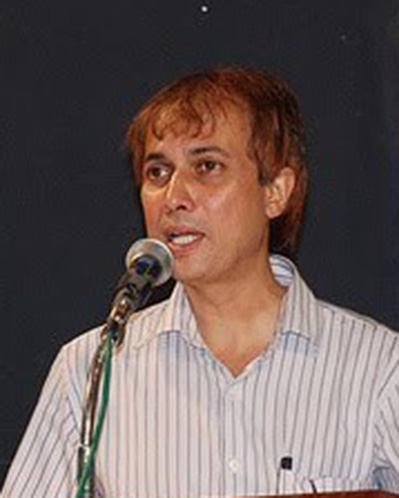
Faizur Rahman Faiz is an independent researcher and commentator on Islamic Law, Peace and Human Rights. He writes articles on social, gender, and religio-political issues in various mainstream newspapers such as The Hindu, Times of India, The Hindustan Times, The Indian Express, Deccan Chronicle, Asian Age, The New Indian Express, DNA, and also in Muslim newspapers and websites such as The Islamic Voice and twocircles.net. He participates in TV debates on social justice. Faiz is an Independent Islamic Researcher and founder Secretary General of the Islamic Forum for the Promotion of Moderate Thought which counters, through the re-interpretation of religious scriptures, all forms of extremism in society. He is an Executive committee member of Harmony India, an organisation headed by Mr. N. Ram, the former Editor-in-Chief of The Hindu that promotes secularism and communal harmony. He is a life member of Anjuman-e-Himayath-e-Islam, an orphanage, and co-author of Living in Harmony (Oxford University Press), a course on value education.
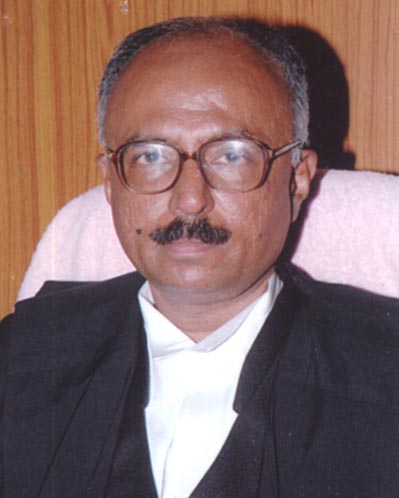
Hon’ble Mr. Justice Ramesh Ranganathan completed his post graduate work in Commerce in 1981. He is also a qualified Chartered Accountant and a Company Secretary. He obtained a law degree from Bangalore University and enrolled as an Advocate in the High Court of Andhra Pradesh in November of 1985. He was a Government Pleader from 1996 to 2000, and the Addl. Advocate General from July, 2000 to May, 2004. He appeared for several companies and statutory bodies including the N.T.R. University of Health Sciences, Visakhapatnam Port Trust, Singareni Collieries Company Limited, Power Grid Corporation of India, Canara Bank Voltas Limited etc. He was elevated as an Addl. Judge of the Andhra Pradesh High Court on 26 May 2005. He was appointed as a Permanent Judge of the Andhra Pradesh High Court in February of 2006. He was nominated as the Executive Chairman of Andhra Pradesh Legal Services Authority, Hyderabad in 2015. Justice Ranganathan was appointed to perform the duties of the Office of the Chief Justice, High Court of Judicature at Hyderabad for the State of Telangana and the State of Andhra Pradesh on 30 July 2016.
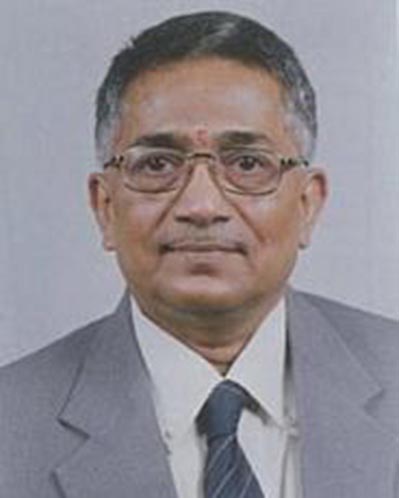
Hon'ble Justice Prakash Rao received an LLB degree from the University College of Law, Osmania University, in Hyderabad. Justice Rao practiced at the High Court of Andhra Pradesh from 1972 until he was elevated as a Judge of the Court in 1999 until May 2011. He was appointed as the Acting Chief Justice of Andhra Pradesh (Nov- Dec, 2010). He joined NALSAR as an adjunct professor after his retirement. During his term as a judge at the Andhra Pradesh High Court, Justice Rao served in a number of positions, including the post of President of the Andhra Pradesh Judicial Academy, introduced various training programmes at State, regional, and unit Levels with specialised modules with motto training at door steps of the officer. He was the Executive Chairman of the Andhra Pradesh State Legal Services Authority. Earlier, he was Government Pleader for the State of Andhra Pradesh (1998-1999), able to dispose of important matters on policy and Revenue of the State, both in industries and Transport Department. He was appointed as Standing Counsel for Andhra Pradesh State Road Transport Corporation (1981-82). He was Secretary of Rotary Club of Hyderabad. His interests include the Law of Precedent, the Law of Possession, all aspects of Procedural Law, Constitutional Law, and other varied subjects.
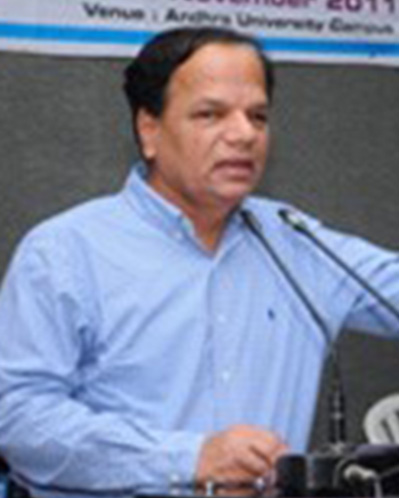
Professor K. Purushotham Reddy is one of India’s foremost environmentalists. He swung into action after the Bhopal Gas disaster. Since then, he has been involved in many environmental struggles. He launched several non-violent campaigns with the intention to make Right to Clean Air, Right to Clean Water, and Right to Livelihood a meaningful proposition. The New York Times in its February 6th 1991 edition regarded him as one of India's leading environmentalists. He waged a successful struggle against the establishment of a nuclear power plant at Nagarjuna Sagar. He was awarded The Capital Foundation, Justice Kuldeep Singh National Award in 2015.
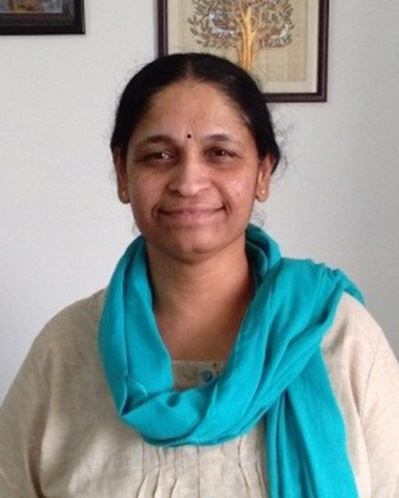
K. Vidyullatha Reddy is a Professor at NALSAR University of Law. She teaches and guides students on Environmental Law, Banking & Finance, and Evidence courses. Her research interest lies in environmental law issues, particularly on waste management. She has a keen interest in connecting theory with practice; hence she had made efforts to develop legal aid and clinical courses at NALSAR University. Some of her research has been published and she has participated in research projects.
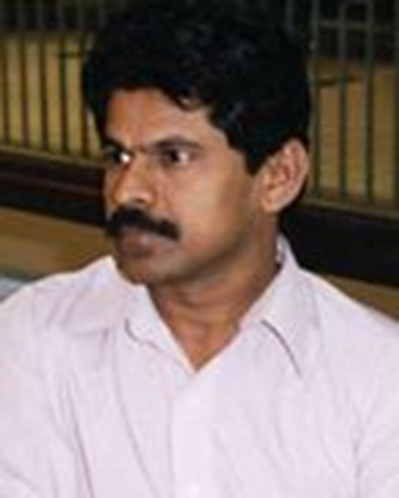
Dr. T. Indrasena Reddy is a pharmaceutical scientist by profession. Dr. Reddy received his PhD degree from Pune University, spent a couple of years in Germany, and then moved to USA. He carried out his research work with prestigious fellowships (India - CSIR, Germany - FSF and Humboldt and USA - NIH), and has been published in international journals. He invented an alternate method to Methyl-Iso-Cyanate (MIC)---the chemical responsible for the World’s worst Industrial Disaster (Bhopal Gas Tragedy). After he worked several years in Johnson and Johnson, a US-based pharma company, he started his own research center.. Last year he moved back to India and is working with a team of highly educated activists under the banners “Save Rivers”, “Green India”, and “Gram Vikas Bharat”, and conducting several seminars on environmental pollution and empowering rural youth.
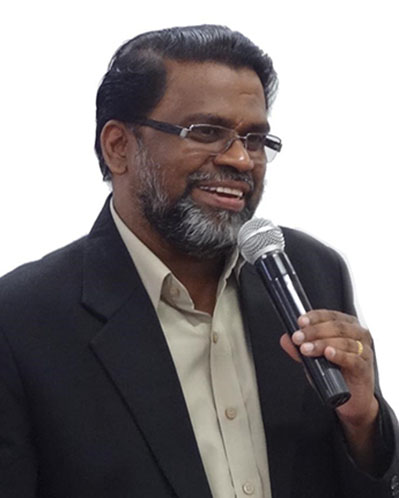
Rev. Dr. Pakiam T. Samuel is an ordained minister of the Church of South India, Tirunelveli Diocese. Presently, he is Executive Director of the Henry Martyn Institute, and he is also associated with the Interfaith Coalition for Peace (ICP), Delhi. Rev. Dr. Samuel received his PhD in Religions from Westminster College, Oxford. He served as Executive Secretary for a term with the National Council of Churches in India. He has published many articles and two books, and is considered an Expert in Interfaith Relations for peaceful coexistence.
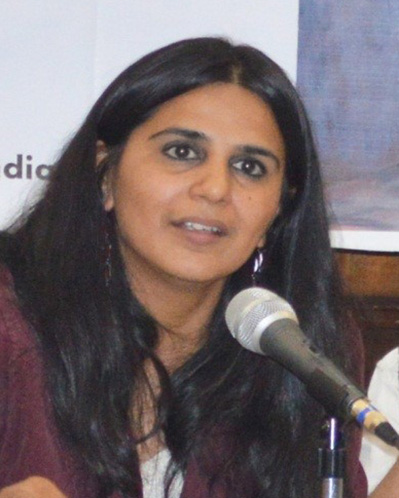
Manisha Sethi teaches at the Centre for the Study of Comparative Religions and Civilizations, Jamia Millia Islamia. She was a fellow at Nehru Memorial Museum and Library, New Delhi, between 2013 and 2015. Sethi is the author of Escaping the World: Women Renouncers among Jains (Routledge, 2012) and Kafkaland: Law, Prejudice and Counterterrorism in India (Three Essays, 2014). She is also consulting associate editor of Biblio: A Review of Books.
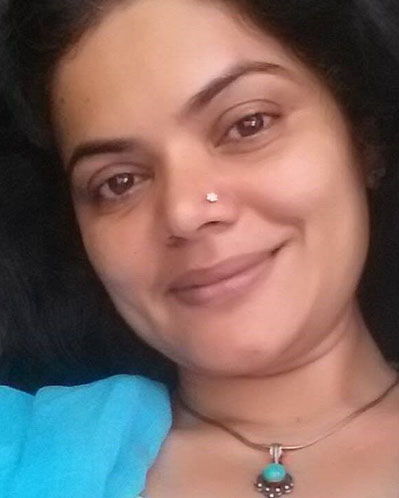
B.S. Sherin is Assistant Professor at the Department of Comparative Literature and India Studies, The English and Foreign Languages University, India. Her academic interests include Secularism in India, Gender in Contemporary India, Comparative Studies, Regional Cinema, Urban Studies, Malayalam Literature and Nation and Literature. She has presented papers in various international and national conferences on these topics. Gender in Contemporary India, Gender and Religion, Women’s Autobiographies, Youth Culture, Nation in Literature and Cities, Space and Culture are some of the courses she teaches. She completed her PhD in “Islam and Women in Kerala” from Mahatma Gandhi University, Kerala, India and the dissertation is under editing for publication. Her current research focus is Urban Visual Culture. A bilingual scholar, she has published in English and Malayalam with peer-reviewed journal articles on Gender and Uniform Civil Code, Religion and Secularism, Women’s Autobiographies, Women in Islam, etc.
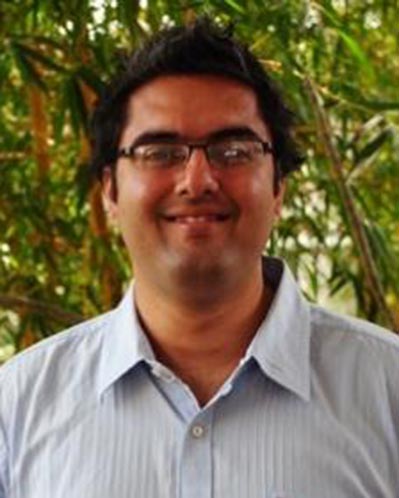
Jagteshwar Singh Sohi is an Assistant Professor, NALSAR University of Law, Hyderabad. He teaches courses in Public International Law, Environmental Law, Law and Justice in a Globalising World, Deliberative Democracy, Habermas and the Public Sphere, and Mooting. He serves on the administrative committees that coordinate mooting and academics. Prior to becoming an Assistant Professor, he was a graduate teaching assistant at NALSAR under Professor Faizan Mustafa. He is pursuing his PhD in Deliberative Democracy, Participation, and its effects on the process of law creation. He received an LLM from NALSAR University in 2013, and before that, a Bachelor of Laws from the Army Institute of Law, Mohali. There he competed in and received awards in various moot court, trial advocacy, and other competitions.
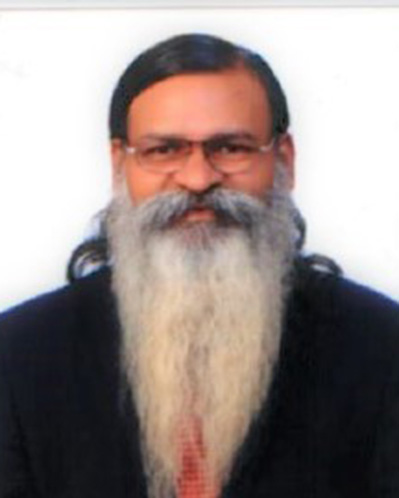
Prof. Dr. P.J. Sudhakar started his life as a child labourer, a waiter in a hotel, and a cattle boy in a remote village, Pedagadi, Visakhapatnam District in Andhra Pradesh, India. He is an advocate for human rights including the right to life, liberty, equality, and human dignity, and he continuously works for the preservation and promotion of fundamental human rights for women and children and the voice-less segments of Indian Society. Dr. Sudhakar had a rich and varied experience of 30 years in Academic teaching, Administration, and Mass Media. He has worked in several organisations like the Central Bureau of Investigation-CBI, DCI, MMTC, Press Information Bureau-PIB, All India Radio, Doordarsan, Publications Division, and Ministry of Defence. He wrote 250 books in different languages and 50 books on law to be released in 2017. He received several prestigious national and international awards including the Mother Theresa Award; Dr. B.R. Ambedkar Award, Raja Ram Mohan Roy National Award; International Ambassador for Peace Award from UNO Agency and International Human Rights Award from UNO Agency; Life time Achievement Award from Dr. Purandareswari, Minister of State for Human Resource Development, Govt of India; Pragna Award received from Dr. J. Geeta Reddy, Minister for Major Industries, Government of AP; Mahatma Jyothi Baphule Award; and Puchalapalli sundarayya Award from Dr. K. Rosiah, Governor of Tamil Nadu.
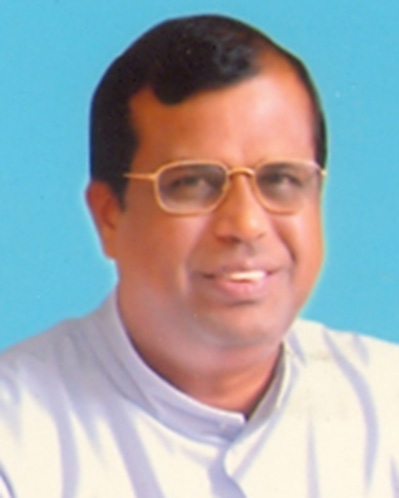
Rev. Dr. V.K. Swamy is a renowned educationist and astute administrator in the field of Education. He has two doctorates to his credit in Education and Business Management from Osmania University. He is the General Secretary of the Association of Catholic Educational Institutions of Andhra Pradesh and Telangana since 2016. He presently serves as the Director, Skill Development of TASK (Telangana Academy of Skill and Knowledge), Government of Telangana. He was the founder Principal & Secretary of St Joseph’s Degree & PG College. He presented and published papers in international conferences and also published a book on Teacher and Professional Commitment.
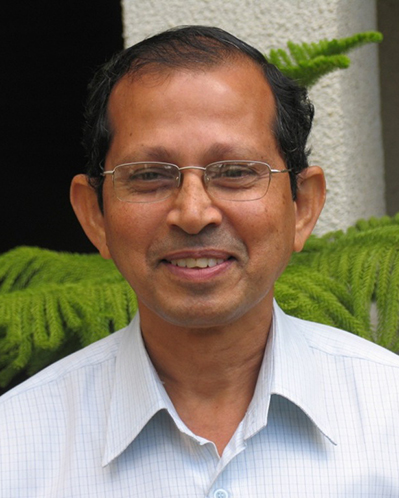
John Tharakan SDB, Director, Oota-Wellsprings (Don Bosco Psychosocial Services), is a Catholic Priest. He is a Social Activist, counsellor, and therapist at Don Bosco Navajeevan, a home for dis-advantaged children in Hyderabad. He has worked with bonded labour, minimum wages, cooperatives, unions, discrimination, gender issues, legal education, and disaster relief. He pioneers in integrating psychology with Social Action. As a follow up to a National Workshop on “Care of Children with Behavioural Difficulties” in March 2014, he leads a Participatory Action Research project with 30 researchers in 10 cities of India working with the Young at Risk.
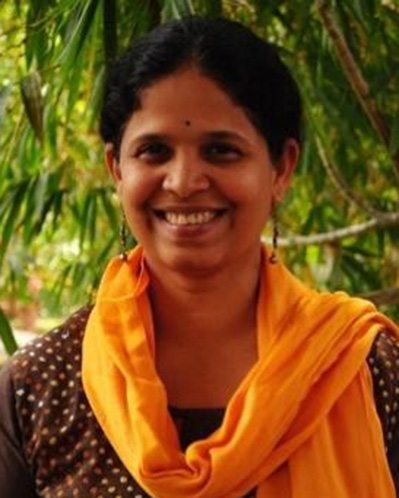
Professor Nimushakavi Vasanthi is the head of the Center for Constitutional law, policy and good governance at the NALSAR University of Law and offers courses on constitutional law and labour law. She has worked on field based research projects including one on the Chenchu tribe in Andhra Pradesh. She has coordinated two national workshops on regulatory aspects of financial inclusion and social exclusion and rights of persons with disability. Her publications include an article in the Journal of Workplace Rights on "Organising domestic workers and workplace rights: A case study from Hyderabad".
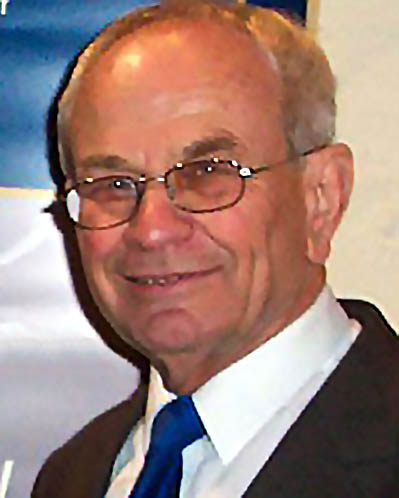
Professor Asher Maoz is the Founding Dean of the Peres Academic Center Law School. He was for many years on the Faculty of Law at Tel-Aviv University, where he taught Constitutional Law, State and Religion, Freedom of Speech, Family Law, and Succession Law. Professor Maoz holds the degrees LLB and LLM, both summa cum laude (Hebrew University), M Comp L (University of Chicago), JSD (Tel-Aviv University), and Doctor Honoris Causa (Ovidius University, Romania). He is the founding Editor-in-Chief of Law, Society and Culture; a former editor of the Tel-Aviv University Law Review; a member of the Scientific Board, Review Dionysina; a member of the Academic Council of The International Academy for Jewish Leadership; and a member of the Academic Council, Shalem College, Jerusalem. Maoz was Chair of the Law Commission for Journalists’ Privileges; served as academic advisor to the Knesset Constitution, Law and Justice Committee on adopting a constitution for the State of Israel; and serves with many other organizations. He has taught at several universities in the United States, Europe, and Australia, and is the author of numerous publications on the intersections of law and religion. He is a member of the Steering Committee of the International Consortium for Law and Religion Studies (ICLARS).
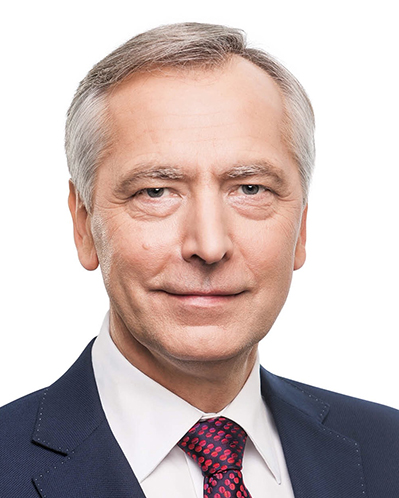
In May 2016 Ján Figeľ was nominated by the European Commission as the first Special Envoy for promotion of freedom of religion or belief (FoRB) outside the European Union. Formerly European Commissioner for Education, Training & Culture, Mr. Figeľ has also held other positions such as State Secretary of the Ministry of Foreign Affairs and was the Chief Negotiator for Slovakia's accession into the EU. He joined the Christian Democratic Movement party in 1990 and was elected in 1992 as an MP to the National Council of the Slovak Republic, serving on its Foreign Affairs Committee and becoming a member of Slovakia's delegation to the Council of Europe. In 1998 he was appointed State Secretary of the Ministry of Foreign Affairs, and was also the representative of the Slovak government in the European Convention which drafted the European Constitution. From 2004 to 2009 he served as European Commissioner for Education, Training, Culture and Multilingualism, with a brief stint as Commissioner for Enterprise and Information Society. In 2009 we was elected leader of the Christian Democratic Movement in Slovakia. He stepped down from his Commission post in 2009 following his election as leader of the Christian Democratic Movement in Slovakia.
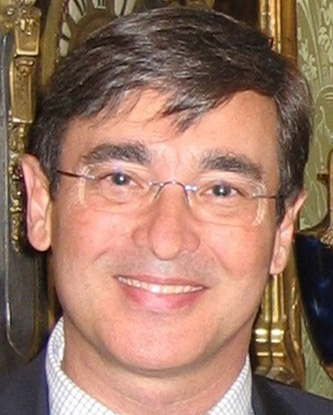
Javier Martínez-Torrón is Professor of Law and Director of the Department of Law and Religion, Complutense University of Madrid and Vice-President of the Section of Canon Law and Church-State Relations of the Spanish Royal Academy of Jurisprudence and Legislation. He is Honorary Foreign Member of the National Academy of Law and Social Sciences of Cordoba, Argentina; a former member of the Organization of Security and Co-operation in Europe/Office for Democratic Institutions and Human Rights Advisory Council for Freedom of Religion or Belief; and a member of the Spanish Advisory Commission for Religious Freedom within the Ministry of Justice. His research on law and religion issues is characterized by a predominant interest in international and comparative law. His writings, published in twenty-three countries and in twelve languages, include twenty books as author, co-author or editor, and more than one hundred essays in legal periodicals or collective volumes. His book Conflictos entre conciencia y ley. Las objeciones de conciencia (2nd ed., in collaboration with R. Navarro-Valls, 2012), contains possibly the most complete study published until now on the issue of conflicts between law and conscience.
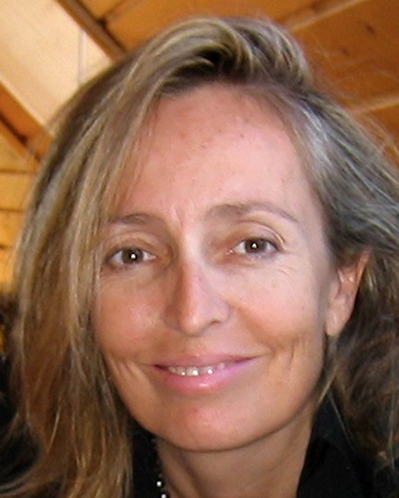
Professor Lorena Bachmaier Winter has been a professor of the faculty of law at Complutense University since 1996, where she teaches both criminal and civil procedure. She has written extensively on the subject of procedure and lectured in universities and governmental agencies in Europe and Latin America. She is a member of the Spanish Royal Academy of Jurisprudence and Legislation and the Ibero-American Association of Procedural Law and has consulted for Spain’s Ministry of Justice. Over the years she has been a fellow at the Alexander von Humboldt Foundation and a visiting scholar in the Max-Planck Institute for Foreign and International Criminal Law (Freiburg, Germany), the University of California-Berkeley, and Harvard University. Her comparative legal studies are focused on human rights and procedure, international judicial cooperation, comparative law, and the EU process of legal harmonization. She holds a JD, MA, and JSD from Complutense University
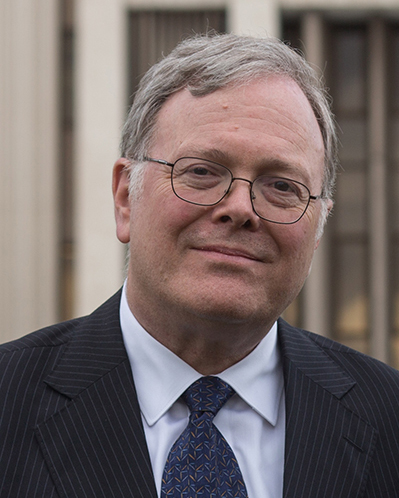
Cole Durham is Susa Young Gates University Professor of Law and Founding Director of the International Center for Law and Religion Studies (ICLRS) at the J. Reuben Clark Law School of Brigham Young University. He is a graduate of Harvard College and Harvard Law School, where he was a Note Editor of the Harvard Law Review and Managing Editor of the Harvard International Law Journal. He has been heavily involved in comparative law scholarship, with a special emphasis on comparative constitutional law. He is a founding Editor-in-Chief of the Oxford Journal of Law and Religion. He served as the Secretary of the American Society of Comparative Law from 1989 to 1994. He is an Associate Member of the International Academy of Comparative Law in Paris—the premier academic organization at the global level in comparative law. He served as a General Rapporteur for the topic 'Religion and the Secular State' at the 18th Congress of the International Academy of Comparative Law, held in July 2010. He served in earlier years as Chair both of the Comparative Law Section and the Law and Religion Section of the American Association of Law Schools. Professor Durham was President of the International Consortium for Law and Religion Studies (ICLARS) from 2011-2016.
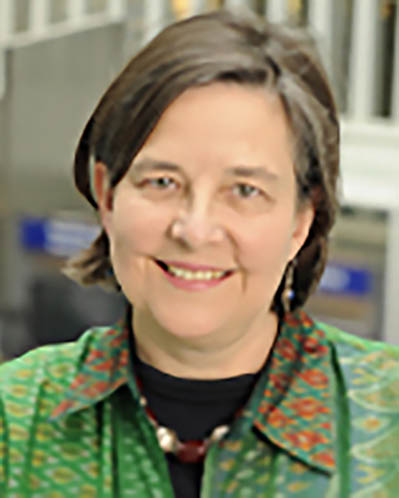
Katherine Marshall has worked for more than four decades on international development, focusing on the world’s poorest countries. A senior fellow at Georgetown’s Berkley Center for Religion, Peace, and World Affairs and Professor of the Practice of Religion, Development, and Practice in the School of Foreign Service, she is the executive director of the World Faiths Development Dialogue, a non-governmental organization whose mission is to bridge gulfs that separate the worlds of development and religion. During a long career at the World Bank she held leadership assignments on Africa, Latin America, and East Asia and on values, ethics, and religion, including a six-year assignment as Director of Development Dialogue on Ethics and Values and Counselor to the President.
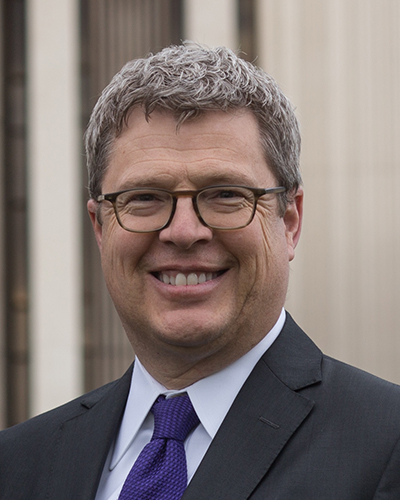
Brett G. Scharffs is Francis R. Kirkham Professor of Law and Director of the International Center for Law and Religion Studies at Brigham Young University Law School. He received a BSBA in international business and an MA in philosophy at Georgetown University and, as a Rhodes Scholar, earned a BPhil in philosophy at Oxford. He received his JD from Yale Law School, where he was senior editor of the Yale Law Journal. He is a recurring visiting professor at Central European University in Budapest and at the University of Adelaide Law School. He has for several years helped organize certificate training programs in religion and the rule of law in China and in Vietnam and has taught and helped organize programs at several Indonesian universities on sharia and human rights. Author of more than 100 articles and book chapters, he has made more than 300 scholarly presentations in 30 countries. His casebook, Law and Religion: National, International and Comparative Perspectives (with Cole Durham, 2nd English edition forthcoming 2017), has been translated into Chinese and Vietnamese, with Turkish, Burmese, and Arabic in process. He is author with Elizabeth Clark of Religion and Law in the USA, a 2016 contribution to Wolters Kluwer’s International Encyclopaedia of Laws.
